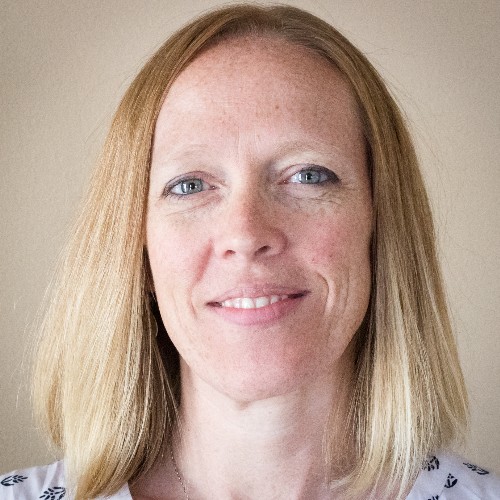Why Leading with Digital Equity Matters

Tuesday, February 20, 2024
Digital Beat
Why Leading with Digital Equity Matters
Reflections from Maine

Maine is the first state in the country to have its Digital Equity Plan approved by the National Telecommunications and Information Administration (NTIA). This is a major accomplishment in that this represents the first statewide Digital Equity Plan to ever be developed for our state (and the first tied to the Infrastructure Investment and Jobs Act—also known as Bipartisan Infrastructure Law). And, it is fitting that our Digital Equity Plan can now be put into motion ahead of any infrastructure deployed through the Broadband Equity, Access, and Deployment (BEAD) Program.
Digital equity is at the root of our foundation and at the peak of our roofline. And make no mistake, the structure of our building is not made up of two separate pillars: digital equity and digital infrastructure. Our building is constructed (using trusses sourced from Maine woods) with interconnected digital equity and digital infrastructure nodes. One cannot support the structure without the other. We need a digital equity lens in our policies, programs, and practices, to sustain the surge of infrastructure investment we will soon receive.

In Maine, that means that the digital equity strategy anchors our infrastructure deployment. During the last year, our partnerships with over 60 organizations and thousands of individuals from every region of the state were a major force in creating our Broadband Action Plan and BEAD proposals. But that builds from a strong legacy of an integrated approach. Twenty years ago, Senator Angus King (then Governor) made a big bet to enable all school children to have access to a laptop computer. Four years ago, Senator Susan Collins and Senator King fought to establish the Infrastructure Investment and Jobs Act including dedicated funding for digital equity. Three years ago, Governor Janet Mills laid the foundation for comprehensive connectivity built upon the pillars of digital infrastructure and digital inclusion by establishing our agency following a massive effort to get Maine kids connected to the internet at home during the pandemic. This people-centered approach is in our DNA and is important to share.
Fundamentally, this integrated approach is about affording opportunities to the places and people who will benefit from increased connectivity most. NTIA has dubbed these “covered populations'' which is apt because we must ensure all populations are, in fact, covered. To be covered is to be included; to be included is to have access and agency. In a state that is 89 percent rural, almost everyone in Maine is a covered population, and if not, their neighbors certainly are. Informed, empowered people will drive subscriptions and, therefore, drive demand for the digital infrastructure that the BEAD Program will fund. The more people who use the services, the more sustainable the investment will be and the greater return on that investment to all of us. This is why public funds for private activities are necessary in places where the market is hard to attain. This is the Maine way.

Our Digital Equity Plan doesn’t just address barriers, it also takes stock of our unique assets and resources that already exist to address the digital divide. Growing and scaling our unique assets will be critical to success. These activities exponentially increase our chances of success with BEAD, middle-mile and last-mile infrastructure deployment. We’re not proud of our Digital Equity Plan because it is the first to be approved by NTIA, but because it represents the collective work of hundreds of organizations and reflects the voices of thousands of Maine people from all corners of our state
So—why does it matter to lead? It is less about the product and more about the process. Next week, over three dozen organizations and agencies will convene for a monthly meeting of our Digital Equity Task Force. We do our best to hear each other and translate ideas into action. MCA will continue to braid together state and federal funding to support regional and Tribal digital inclusion efforts around the state. In May, we will award the first grants through the Connectivity Hubs program to build modern facilities in underserved communities for Maine people to have access to education, workforce opportunities, telehealth, affordable internet and devices, digital skills training, and much more. That momentum will fuel the second annual statewide Digital Equity Workshop and serve as a springboard to launch Maine’s Digital Equity Fund. When Digital Equity Act implementation funding does arrive, it will super charge our efforts. It will be the next critical ingredient to help sustain the ecosystem of partners already doing digital inclusion work together.
Ultimately, this work is powered by people. Amidst all the complexity—the technology, speed tests, challenge processes, grant reports, maps, politics, etc.—it is important to remember that we are fundamentally working to enable a better connection with one another. To connect is to hear and be heard; to see and be seen. This is a reflection of a commitment at every level of the government in the country, in every geography across public and private sectors, that this purely human invention of the Internet must be by the people and for the people.
Maggie Drummond Bahl - Director of Strategic Partnerships, Maine Connectivity Authority
Jenna Ingram - Communications Manager, Maine Connectivity Authority
Andrew Butcher - President, Maine Connectivity Authority
The Benton Institute for Broadband & Society is a non-profit organization dedicated to ensuring that all people in the U.S. have access to competitive, High-Performance Broadband regardless of where they live or who they are. We believe communication policy - rooted in the values of access, equity, and diversity - has the power to deliver new opportunities and strengthen communities.
© Benton Institute for Broadband & Society 2023. Redistribution of this email publication - both internally and externally - is encouraged if it includes this copyright statement.
For subscribe/unsubscribe info, please email headlinesATbentonDOTorg






